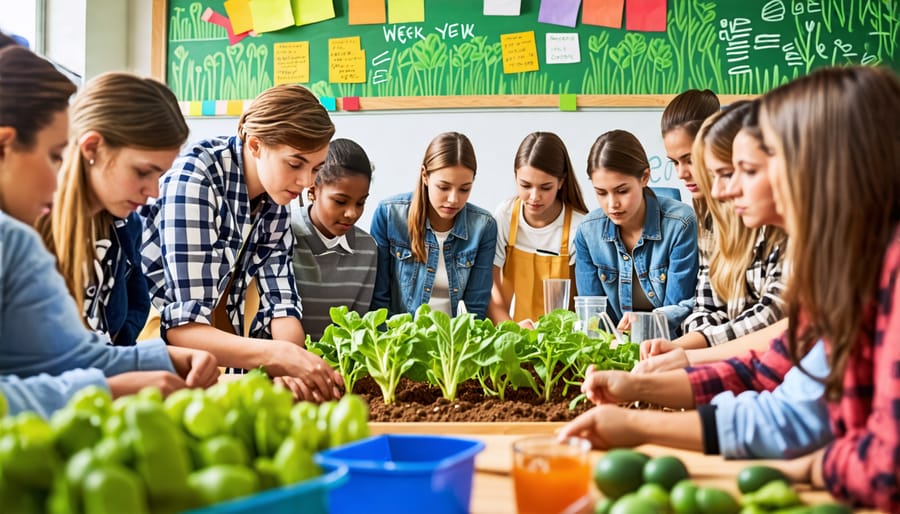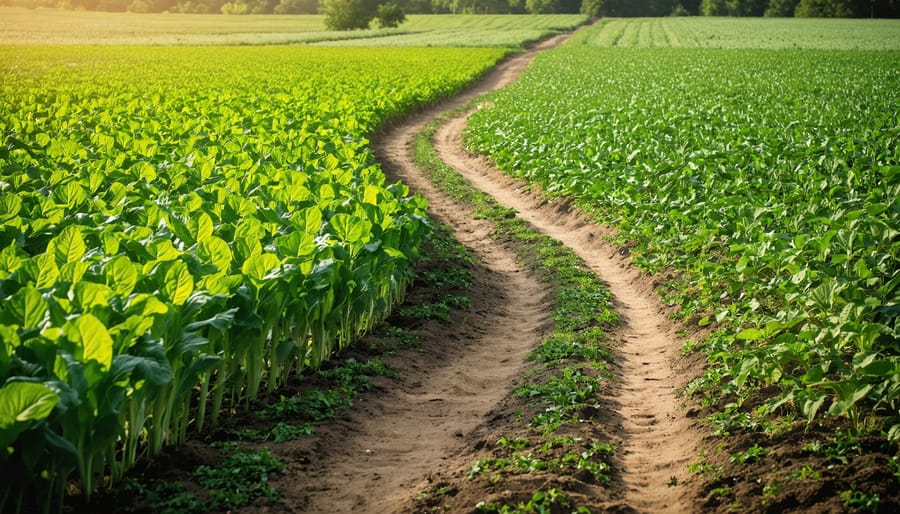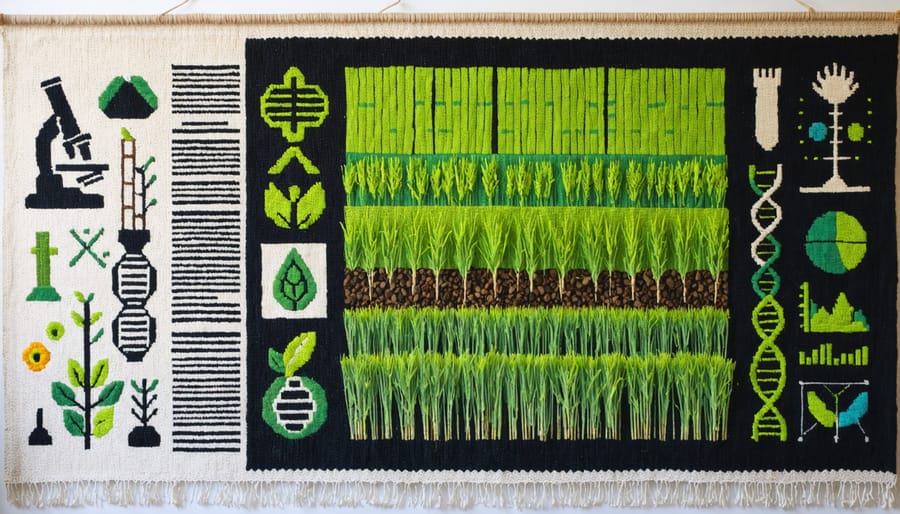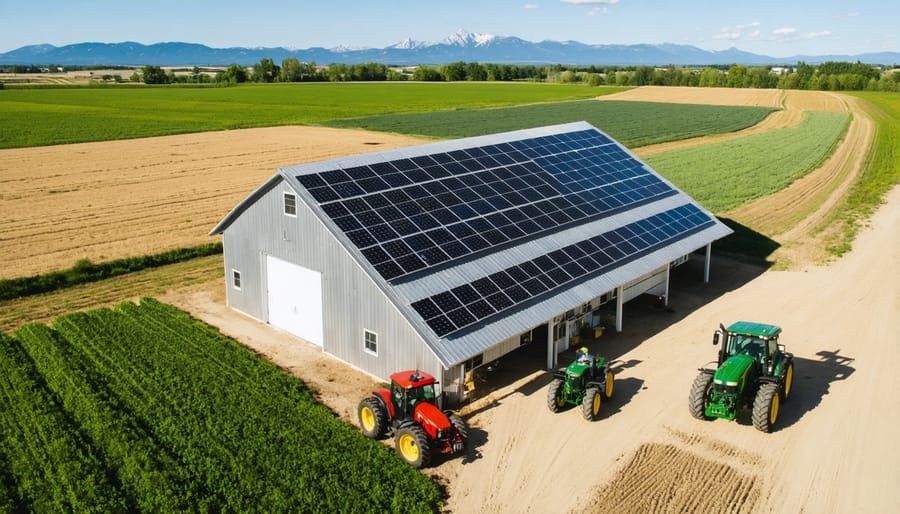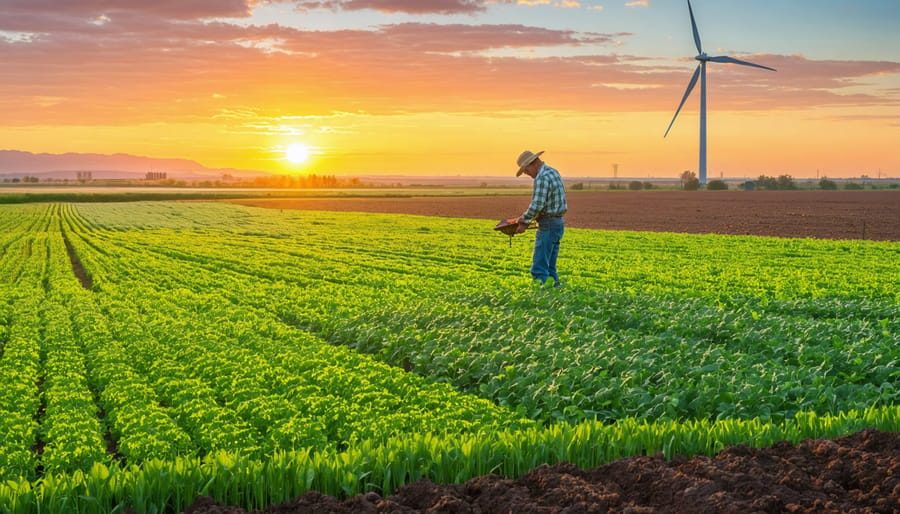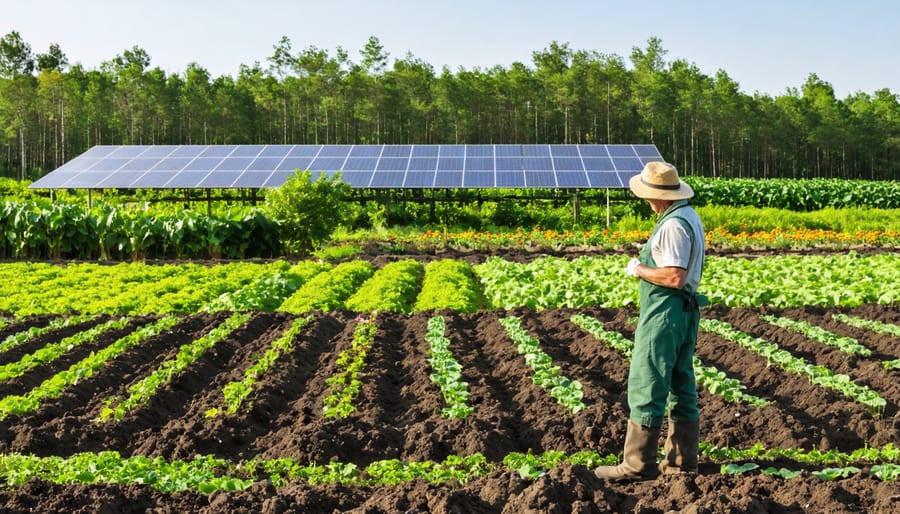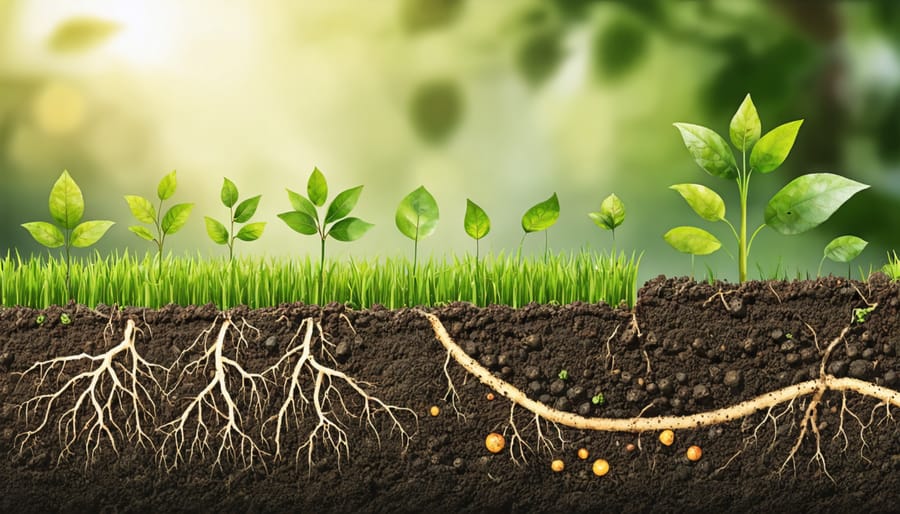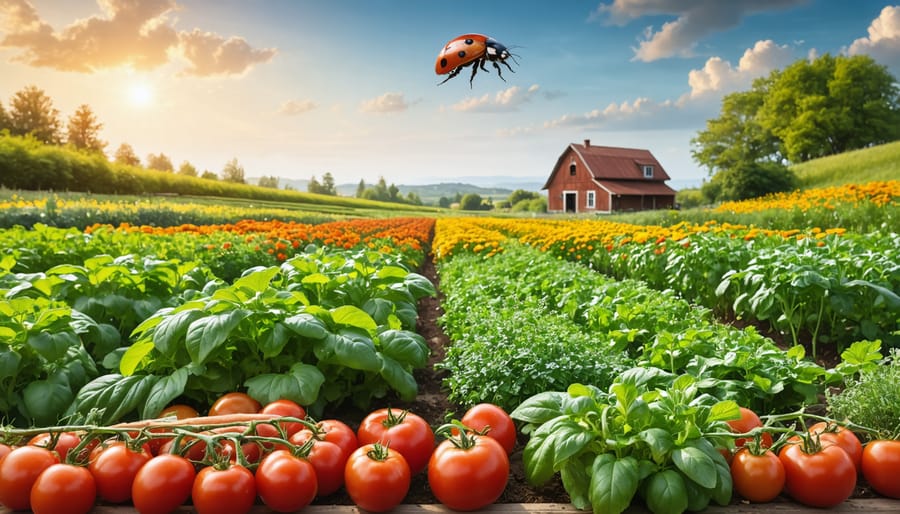Discover the three pillars of a successful agricultural education program that empowers students to become skilled farmers and leaders in sustainable farming practices. Classroom instruction delivers foundational knowledge, hands-on experience develops practical skills, and leadership opportunities foster personal growth and community engagement. By integrating these components, agricultural education equips the next generation to tackle the challenges facing Canadian agriculture head-on.
Classroom & Laboratory Instruction
Curriculum Design
The curriculum design for an effective agricultural education program in Alberta, Canada, should cover essential topics that promote sustainable practices and equip students with the knowledge and skills needed to excel in the field. Courses should be structured to provide a solid foundation in key areas such as soil health, crop management, and environmental stewardship. By emphasizing the importance of maintaining healthy soil through proper nutrient management, crop rotation, and conservation tillage, students gain a deep understanding of the long-term benefits of these practices. Additionally, the curriculum should cover various aspects of crop management, including planting techniques, pest and disease control, and irrigation strategies that optimize water usage while minimizing environmental impact. Environmental stewardship is another crucial component, with courses focusing on the responsible use of resources, the preservation of biodiversity, and the adoption of eco-friendly technologies. Case studies featuring successful Canadian farmers and expert insights can further enrich the learning experience, showcasing real-world applications of sustainable practices. By designing a comprehensive curriculum that addresses these critical topics, agricultural education programs in Alberta can produce knowledgeable and skilled graduates who are well-equipped to contribute to the growth and success of the province’s agricultural sector while prioritizing environmental sustainability.
Experiential Learning
Experiential learning is a crucial aspect of agricultural education, as it allows students to apply theoretical concepts learned in the classroom to real-world situations. Through hands-on laboratory sessions, students gain practical skills in areas such as soil analysis, plant propagation, and animal husbandry. These sessions provide a safe, controlled environment for students to experiment, make mistakes, and learn from their experiences.
Field trips to local farms, agricultural research centers, and agribusinesses further enhance the learning experience by exposing students to the day-to-day operations of the agricultural industry. These visits offer valuable opportunities for students to interact with experienced professionals, observe best practices, and gain insights into the challenges and opportunities facing the sector.
Case studies are another effective tool for reinforcing classroom concepts and promoting critical thinking skills. By analyzing real-world scenarios and developing solutions to complex problems, students learn to apply their knowledge in a practical, context-specific manner. This approach is particularly relevant in the Alberta region, where diverse agricultural practices and environmental conditions require adaptable, innovative solutions.
Incorporating Canadian agricultural case studies into the curriculum helps students understand the unique challenges and opportunities facing the industry in their own country. By studying the successes and failures of local farmers and agribusinesses, students gain a deeper appreciation for the importance of sustainable practices, community engagement, and adaptability in the face of changing market conditions and environmental pressures.
Experiential learning opportunities, such as laboratory sessions, field trips, and case studies, are essential for preparing students to become successful, knowledgeable, and innovative members of the agricultural community. By bridging the gap between theory and practice, these experiences help students develop the skills, confidence, and vision needed to contribute to a thriving, sustainable agricultural sector in Alberta and beyond.

Supervised Agricultural Experiences (SAEs)
Types of SAEs
There are several types of Supervised Agricultural Experiences (SAEs) that cater to students’ diverse interests and career aspirations. Ownership SAEs involve students owning and operating their own agricultural enterprises, such as raising livestock or growing crops. For example, a student in Alberta might start a small-scale beef cattle operation or cultivate a market garden. Placement SAEs allow students to gain work experience in agricultural businesses, such as working on a dairy farm, at a greenhouse, or with an agricultural service provider. These opportunities help students develop practical skills and explore potential career paths. Research SAEs encourage students to conduct scientific investigations related to agriculture, such as experimenting with soil conservation techniques or studying the effects of different feed rations on livestock growth. These projects foster critical thinking and problem-solving skills while contributing to the advancement of agricultural knowledge. Other types of SAEs include service learning projects, where students volunteer their time and skills to support local agricultural initiatives, and exploratory SAEs, which allow students to investigate various aspects of the agricultural industry through job shadowing, interviews, and field trips. By engaging in these diverse SAEs, Canadian students gain hands-on experience, develop leadership skills, and prepare for successful careers in the dynamic field of agriculture.
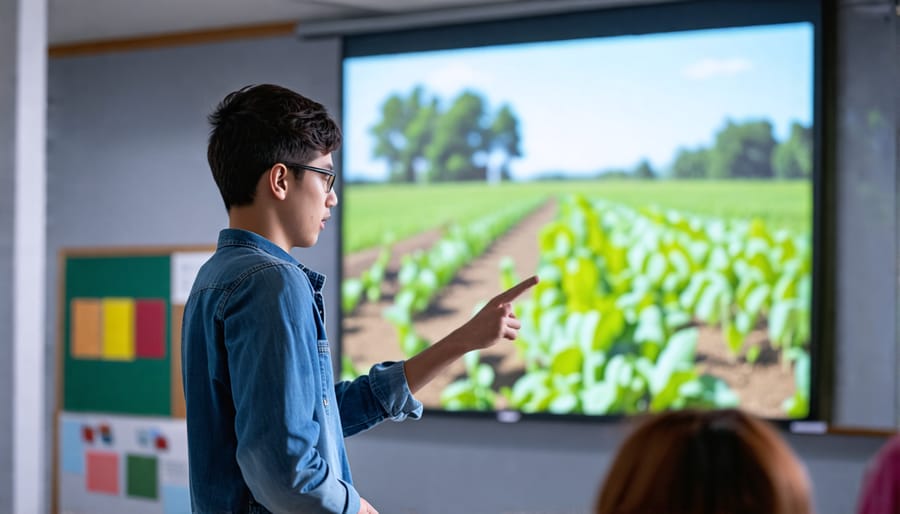
Mentorship & Support
Mentorship and support from experienced educators and industry partners are vital components of a successful SAE program. These mentors guide students through the planning, implementation, and evaluation stages of their projects, offering valuable insights and practical advice. By fostering strong relationships between students and mentors, SAE programs create a supportive network that encourages personal and professional growth. Mentors help students navigate challenges, celebrate successes, and develop the skills needed to thrive in the agricultural industry. Industry partners also play a crucial role by providing resources, internship opportunities, and real-world experiences that complement classroom learning. Through these partnerships, students gain exposure to diverse aspects of agriculture and build connections that can lead to future career opportunities. By leveraging the expertise and support of mentors and industry partners, SAE programs empower students to become confident, knowledgeable, and engaged members of the agricultural community.
Leadership Development through FFA
Personal Growth Opportunities
The FFA offers a wealth of personal growth opportunities for students involved in agricultural education programs. Leadership conferences, such as the annual National FFA Convention, bring together thousands of students from across Canada to develop their leadership skills, network with peers, and gain exposure to new ideas and perspectives. These conferences feature inspiring keynote speakers, educational workshops, and team-building activities that help students build confidence and discover their potential as leaders in the agriculture industry.
Public speaking events, including prepared public speaking and extemporaneous speaking competitions, challenge students to research, organize, and effectively communicate their ideas on agriculture-related topics. These events not only enhance communication skills but also foster critical thinking and problem-solving abilities. By participating in these competitions, students gain valuable experience in articulating their thoughts and engaging audiences, which are essential skills for success in any career path.
Service projects are another integral aspect of personal growth in agricultural education programs. Through the FFA, students have the opportunity to give back to their local communities by organizing and participating in various service initiatives. These projects may include volunteering at local food banks, assisting with community gardens, or mentoring younger students interested in agriculture. By engaging in service projects, students develop a sense of social responsibility, empathy, and teamwork while making a positive impact on their communities.

Networking & Scholarships
FFA offers invaluable networking opportunities for students passionate about agriculture. Through connections with experienced mentors, students gain insights into various career paths and receive guidance on navigating the industry. FFA also facilitates internships with local farms, agribusinesses, and research institutions, allowing students to apply their knowledge in real-world settings. These hands-on experiences not only enhance their skills but also help them build professional relationships within the agricultural community. Additionally, FFA provides access to numerous scholarships and grants, supporting students in their educational pursuits and enabling them to pursue their dreams in agriculture. By connecting students with these resources, FFA plays a crucial role in nurturing the next generation of agricultural leaders in Alberta and across Canada.
Conclusion
Comprehensive agricultural education plays a vital role in shaping the next generation of sustainable agriculture practices and environmental stewards in Alberta. By equipping students with a solid foundation in agricultural science, practical skills, and leadership abilities, these programs cultivate a deep understanding of the complex relationship between farming and the environment. As the world faces increasing challenges related to food security, climate change, and resource management, it is more important than ever to invest in the education of our future farmers. Through a well-rounded curriculum that emphasizes both theoretical knowledge and hands-on experience, agricultural education programs in Alberta are nurturing a new generation of innovators and problem-solvers who will lead the way in developing sustainable solutions for the agricultural sector. By supporting and promoting these programs, we can ensure a bright future for Canadian agriculture and the communities that depend on it.

